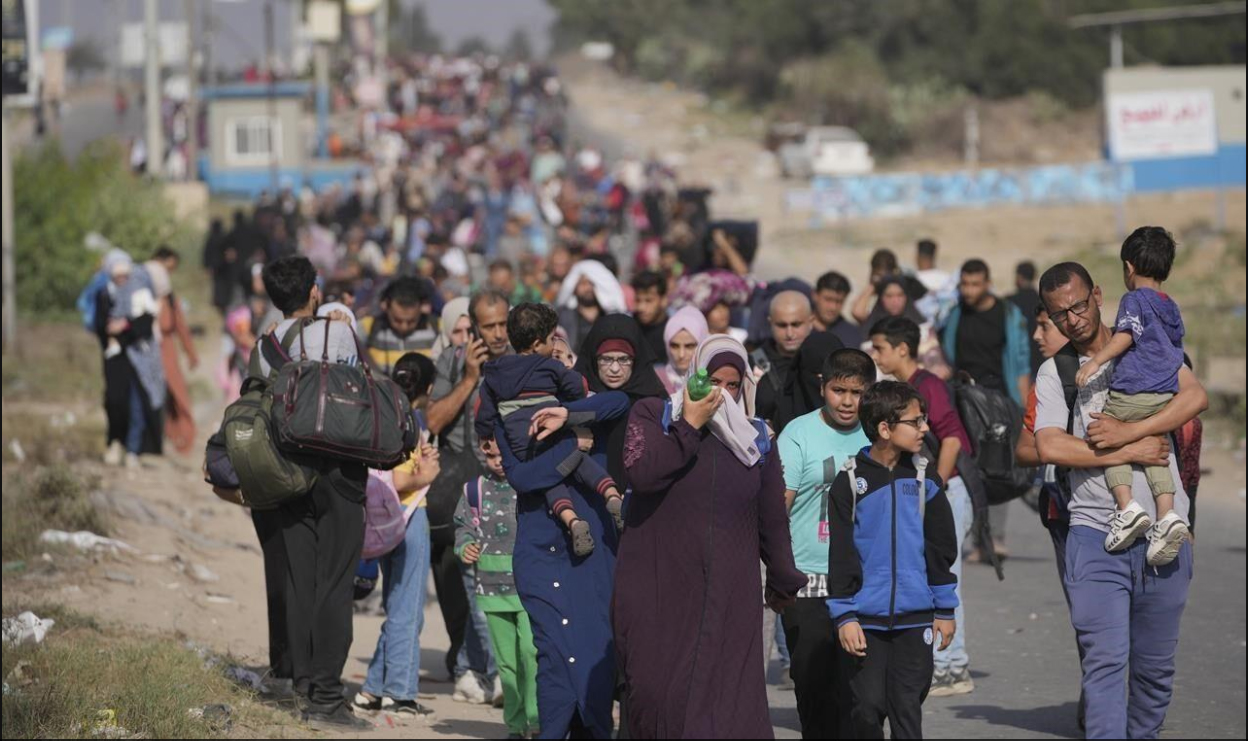Palestine is, and still remains, a land full of life. The cultural, religious, landscape, and biodiversity are just a few of the many characteristics that make Palestine a land worth living and ‘dying’ for. Mahmoud Darwish, a famous Palestinian poet, in his poem “On this Land,” celebrates the beauty of Palestine and the resilience of its people. The land of Palestine is not merely a piece of property and real estate; it is a living entity, a mother that gives birth and provides for its people. Palestinians feel connected to their land like a fetus attached to his mother’s womb. And even though they have been displaced, they refuse to be uprooted. Their land continues to live in their hearts and memories, and flourishes in their imaginations. Palestinians have a very unique attachment to their land, saying, “All nations have a land to live on, but our land lives in us.”
For the past 76 years (since 1948) and on May 15th, Palestinians have been commemorating their forcible displacement from their motherland, Palestine. Al-Nakba (النكبة) is an Arabic word for catastrophe. Yet, the Arabic word is pregnant with deep meanings that in English lacks sufficient equivalence. Al-Nakba summarizes the ethnic cleansing and genocide that Zionist militia committed systematically and deliberately against the Palestinian people, the dispossession of Palestine from its indigenous people, the feeling of loss and defeat, and grieving for loved ones and land. Al-Nakba never ended. The Zionist colonial regime has constantly and for 76 years been actively subjugating and suffocating the Palestinian people. Therefore, Al-Nakba isn’t an event of the near past, but also a present reality for Palestinians. In recent months, many Israeli Zionists have been calling for a “second Nakba”. Some Zionists have celebrated the war and genocide happening in Gaza as such. A simple look at the 1948 Nakba and the current genocide in Gaza demonstrates the brutality of the Zionist regime and its attempt to erase Palestine and the Palestinians. One irrevocable consequence of the genocide and continuous Nakba is the alarming decline of Palestinian Christians and the near-extinction of Palestinian Christians in Gaza.
With that being said, the Palestinian narrative has been widely dismissed, or at worst, even discredited, as the war of misinformation and disinformation continues to wage against Palestinians. Therefore, it is important to learn with intentionality and open-mindedness about Palestine and Palestinians. Here are three practical pieces of advice:
First, read books about the Palestinian experience and theology that challenge the dominant Israeli narrative. Theologians at Bethlehem Bible College, many of whom have witnessed their families’ displacement and suffering during and after 1948, such as Alex Awad, Salim Munayer, Yohanna Katanacho, and Munther Isaac, provide valuable insights. There is an abundance of resources available online and for purchase from our gift shop.
Second, attend our bi-annual conference, Christ at the Checkpoint. The conference offers insights into our theological perspective from the context of Israeli colonization of Palestine. For more than a decade, Christ at the Checkpoint has been a platform for Christ-centered, biblically rooted, and Kingdom-oriented theology for justice and peace. Our upcoming conference “Do Justice, Love Mercy: Christian Witness in Contexts of Oppression” will be held in Bethlehem from the 21st to the 26th of May. We encourage you to attend in-person or online.
Third, come and see Palestine and the living stones, Palestinian Christians, who remain resilient despite all challenges over centuries of constant oppression. With a broken heart, we are grieving the severe decline in the numbers of Palestinian Christians in Gaza and the West Bank due to the absence of security and prospects for peace. Nonetheless, those who are rooted in the land continue to witness to God’s love for our world and share faithfully the Good News.
In these times of pain and deep grief, the Psalmist reminds us that “God is near to the brokenhearted” (Psalms 34:18). There are millions of Palestinians who are still grieving the loss of their land and loved ones. Al-Nakba hasn’t ended, neither has our mission. The Prince of Peace has commissioned us to share and be the Good News, and to be active peacemakers (Matthew 5:9) in a world groaning for peace. Therefore, your prayer, solidarity, and support for Palestinian Christians are more critical today than ever. Please pray for: (a) those are mourning the loss of their loved ones and houses in Gaza and the entire land, (b) the Palestinian Christian community in Gaza and the West Bank, (c) the Christian witness to be bold and prophetic, a light in dark times.
By bethbc.edu






